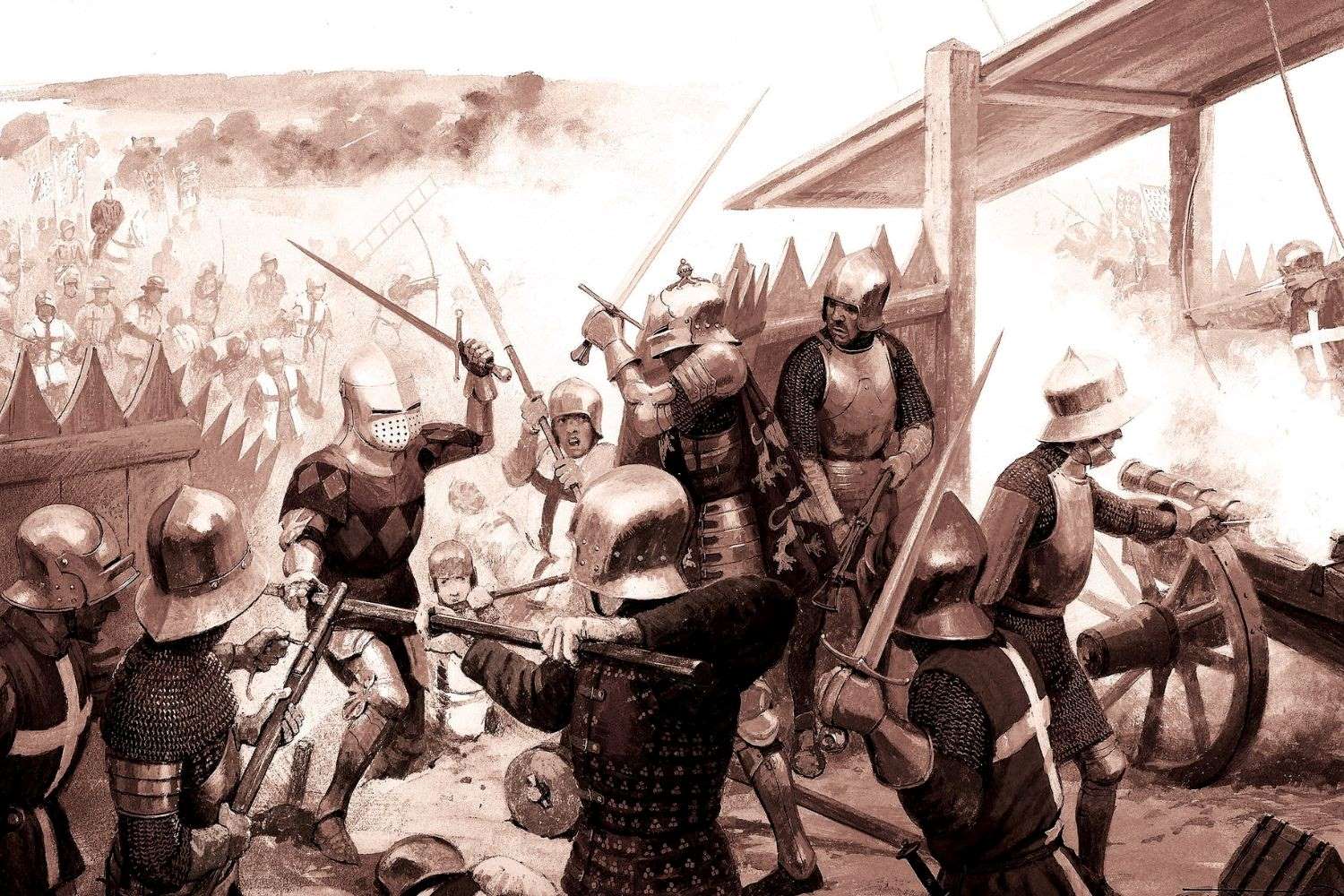
What was the Catalan Civil War? The Catalan Civil War was a conflict in the late 15th century, from 1462 to 1472, within the region of Catalonia in Spain. It pitted the forces of King John II of Aragon against the Catalan institutions and nobility. The war was fueled by political, social, and economic tensions, with the Catalan side seeking greater autonomy and resisting the centralizing efforts of the monarchy. This struggle significantly impacted Catalonia's development, leaving a legacy of regional identity and resistance. Understanding this war helps us grasp the historical roots of Catalonia's ongoing quest for self-determination.
Key Takeaways:
- The Catalan Civil War, lasting from 1462 to 1472, was a conflict between Catalonia and King John II of Aragon, fueled by political tensions and desires for autonomy, leaving a lasting impact on Catalan culture and politics.
- This war, with major battles like Rubinat and Viladamat, led to economic hardship and social tensions in Catalonia, shaping its future desire for autonomy and influencing its literature, art, and identity.
Origins of the Catalan Civil War
The Catalan Civil War, a significant conflict in Spanish history, has roots that stretch deep into the political and social fabric of the region. Understanding its origins helps grasp the complexities of the war.
- The Catalan Civil War began in 1462 and lasted until 1472.
- It was primarily a conflict between the Catalan Generalitat and King John II of Aragon.
- The war was fueled by political tensions and economic struggles within Catalonia.
- Catalonia's desire for greater autonomy played a crucial role in the conflict.
- The war was part of a broader series of conflicts known as the Catalan Revolts.
Key Figures in the War
Several influential figures shaped the course of the Catalan Civil War. Their decisions and actions had lasting impacts on the region's history.
- King John II of Aragon was a central figure, fighting to maintain control over Catalonia.
- Queen Juana Enríquez, John II's wife, played a significant role in supporting her husband's cause.
- The Catalan Generalitat, a political institution representing Catalonia, opposed John II.
- Charles, Prince of Viana, John II's son, became a symbol of resistance against his father.
- The war saw the involvement of various noble families, each with their own interests and alliances.
Major Battles and Events
The Catalan Civil War was marked by numerous battles and significant events that shaped its outcome. These moments were pivotal in determining the war's direction.
- The Battle of Rubinat in 1462 was one of the first major confrontations.
- The Siege of Barcelona in 1462 was a critical event, with the city being a key stronghold.
- The Battle of Viladamat in 1465 saw significant losses for the Catalan forces.
- The capture of Girona in 1467 was a turning point in favor of John II.
- The Treaty of Pedralbes in 1472 marked the end of the war, with Catalonia surrendering to John II.
Social and Economic Impact
The war had profound effects on the social and economic landscape of Catalonia. Understanding these impacts provides insight into the region's subsequent development.
- The war caused widespread destruction of property and infrastructure.
- Many Catalan towns and villages suffered significant population losses.
- The conflict disrupted trade and agriculture, leading to economic hardship.
- The war exacerbated existing social tensions between different classes.
- Post-war, Catalonia faced a period of economic recovery and rebuilding.
Cultural and Political Consequences
The Catalan Civil War left a lasting legacy on the region's culture and politics. These consequences shaped Catalonia's future in various ways.
- The war reinforced Catalonia's desire for greater autonomy within Spain.
- It led to a decline in the power of the Catalan Generalitat.
- The conflict influenced Catalan literature and art, reflecting themes of resistance and struggle.
- The war's outcome strengthened the central authority of the Spanish monarchy.
- The memory of the war continued to influence Catalan identity and nationalism.
Legacy and Historical Significance
The Catalan Civil War remains a significant event in Spanish history. Its legacy continues to be felt in modern times, influencing contemporary politics and culture.
- The war is often seen as a precursor to later conflicts in Catalonia.
- It highlighted the ongoing struggle for regional autonomy within Spain.
- The war's events are commemorated in various Catalan festivals and traditions.
- Historians continue to study the war to understand its broader implications for Spanish history.
- The Catalan Civil War serves as a reminder of the complex relationship between Catalonia and the Spanish state.
The Catalan Civil War's Legacy
The Catalan Civil War left a lasting impact on Spain's history. This conflict, which took place from 1462 to 1472, was a struggle for power and autonomy. It pitted the Catalan Generalitat against King John II of Aragon. The war saw alliances shift, cities besieged, and lives lost. Despite the turmoil, it also sparked a sense of Catalan identity and resistance.
The war ended with the Capitulation of Pedralbes, where Catalonia retained some privileges but remained under the Crown of Aragon. This period highlighted the region's desire for self-governance, a theme that echoes in modern times. Understanding these events helps us appreciate the complexities of Catalonia's history and its ongoing quest for autonomy.
Remembering the Catalan Civil War isn't just about dates and battles. It's about recognizing the enduring spirit of a people determined to shape their destiny.
Frequently Asked Questions
Was this page helpful?
Our commitment to delivering trustworthy and engaging content is at the heart of what we do. Each fact on our site is contributed by real users like you, bringing a wealth of diverse insights and information. To ensure the highest standards of accuracy and reliability, our dedicated editors meticulously review each submission. This process guarantees that the facts we share are not only fascinating but also credible. Trust in our commitment to quality and authenticity as you explore and learn with us.
